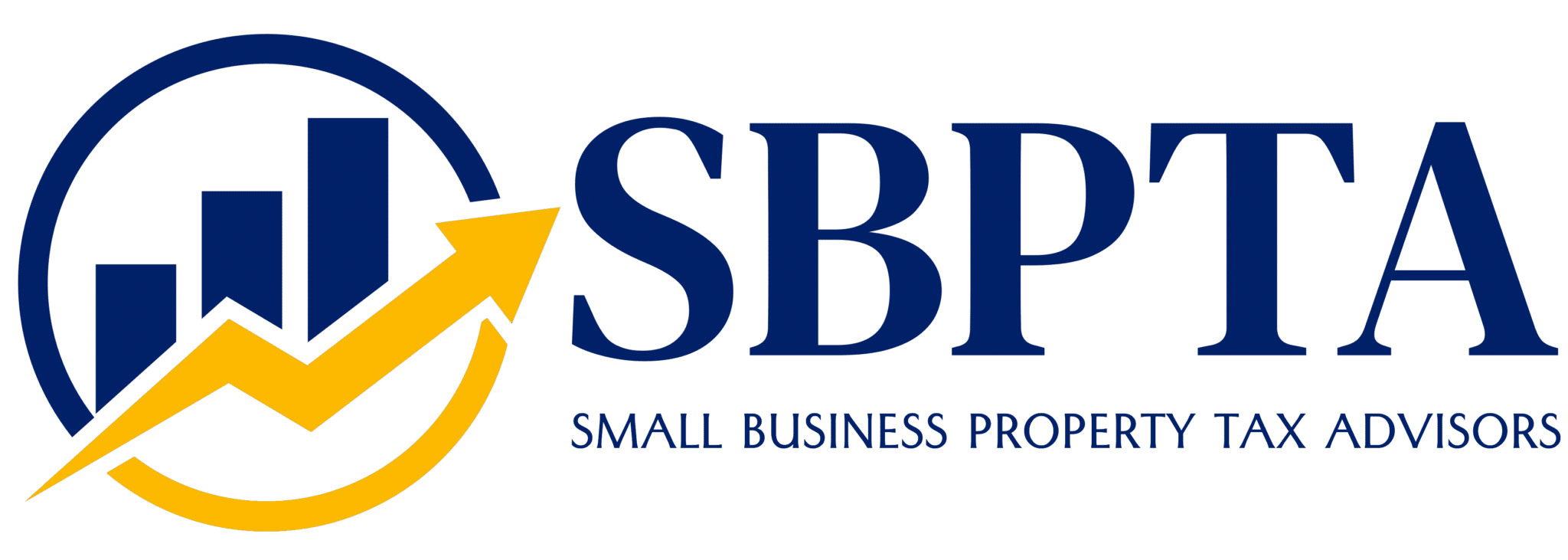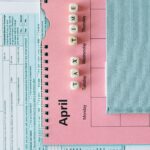Pay Your Fair Share of Property Taxes
In North Carolina, every county must revalue all the properties in the county at least every eight years. Most counties, especially counties experiencing growth, are on a shorter schedule. The larger counties like Mecklenburg county assess every four years. The purpose of this document is to guide you through the process to determine whether, the assessed value of your property warrants an appeal.
North Carolina property taxes are based on an assessed value determined by the Assessor’s office for each county. The charge of the assessor is to assess each property in a fair and equitable manner. The assessor uses mass appraisal techniques and applies a schedule of values for the various property types in the county. The auto-valuation models (AVM’s) perform generally well in areas with strong market activity. However, the nuances of (LINKS) commercial, office, hospitality, multifamily and industrial are not always accounted for in the schedule of values. Should you believe your property is assessed too high, then you must provide evidence to the assessor to support your appeal.
The following provides a projected timeline and foreshadow some of the items that could be needed for a successful tax appeal.
Notice:
- Typically, the County will send out notices of the results of their revaluation in January of the revaluation year. Mecklenburg County has delayed their release until March to allow for analysis of This document contains important information as to how to file an appeal and deadlines. Do not closed sales in the fourth quarter 2022.
- The information to file an appeal will be included on the notice provided. The notice will include information about your property and how to file an appeal. Do not lose your notice as this is the information needed by the assessor or consultant engaged to appeal your assessed value.
- If you purchased your property since the last revaluation, then the purchase price will be the most compelling evidence to support the assessed value. If you purchased your property for more than the assessed value, then we recommend that you do not appeal your assessment.
Filing a Property Tax Appeal:
- The notice of your assessed value will typically include a website where you can file an appeal electronically. We recommend that the appeal be filed in a timely manner as most counties are strict about deadlines for filing appeals. DO NOT MISS DEADLINES!
- For the electronic appeal process, we recommend providing as little information as possible. In many cases, we have seen information provided by a property owner be used against them in their appeal. The definition of the items requested may be different depending on your perspective.
- Example: A property owner of a strip center reported his lease rates to the assessor in an effort to provide transparency. The assessor used these rates and rejected the appeal. The problem arose in the terms of the lease where the landlord used gross leases and the assessor applied them as net leases. While the assessor makes every effort to interpret the information provided, it is important to ensure that the information is applied appropriately.
- The county will likely request the property owner’s opinion of value. If you are not an appraiser, then you can say whatever you think. I recommend not going below the previous assessed value as most assessors see these appeals as unreasonable and will act accordingly.
Property Tax Appeal Process
There are three layers to the tax appeal process. The first two levels are an informal appeal and a local Board of Equalization and Review (BER). Neither of these levels require an attorney or an appraisal. If the local assessor has the intent to get things right, then most of the appeals will be settled through the informal appeal process. The advantage to the property owner is that the legal and appraisal fees are averted. The last level of appeal is to the Property Tax Commission (PTC) in Raleigh. For an appeal to the PTC, an appraisal and a lawyer are required.
- Informal Appeal – The informal appeal is a negotiation with the county regarding your assessed value. During this process the property owner or their representative must present competent evidence to support a reduction in the assessed value. Knowledge of the schedule of values and how they were applied to your property is critical in a successful appeal. The following terms and their meanings are pertinent to communication with the assessor.
- Schedule of Values – The Schedule of Values includes ranges of the appraisal elements applied to the properties throughout the county. The identification of possible errors in the application of the appraisal elements in the schedule of values are likely the source of any adjustment to your assessed value.
- Appraisal Elements – Any appraisal includes an analysis of the physical and legal characteristics of an individual property. The variables in the analysis are called appraisal elements.
At the end of the informal appeal, you will either receive a rejection of your appeal or an offer to settle based on the information provided for the appeal. Most valid appeals result in a reduction of 10% to 15% of the assessed value. For income producing properties, the success and validity of the appeal relies on the interpretation of financial data to the appraisal elements applied by the county. In many cases, the schedule of values is applied appropriately and the assessed value reflects a fair and equitable assessment of similar properties. Most if not all valid and reasonable appeals can be settled at this level if the local assessor intends to assess property fairly and equitably in accordance with North Carolina law.
- BER – Board of Equalization and Review – Each county convenes a board annually to hear appeals that were not settled through the informal appeal process. The property owner must request this hearing to present their evidence. The same evidence should have been provided to the county as part of the informal appeal. Throughout this process it is important to share the same int4ent as the assessor, which is to assess properties fairly and equitably.
- The Board – The board is typically comprised of real estate professionals who volunteer to assist the county. The board is familiar with the schedule of values and the ranges applied. They are familiar with appraisal elements and their application.
- Risk – If you received an offer as part of the informal appeal process and you reject the offer, then the BER is your next course of action. However, the offer made during the informal appeal process is no longer valid. The BER hearing starts from scratch.
- The Decision – The decision of the BER will either lower, raise or maintain the original assessed value. We have seen examples where the information provided by the property owner revealed appraisal elements that raised their assessed value.
- Property Tax Commission (PTC) – The PTC is typically the last level for a tax appeal. The PTC is reserved for the most egregious cases. Most cases heard at the PTC are filed by large companies with deep pockets. An attorney and an appraisal are required for an appeal to the PTC. The governor appoints the members of the PTC. The expenses incurred by a small property owner are typically not cost effective. Attorney and appraisal fees versus the anticipated property tax savings is why we recommend that every effort is made to settle the appeal at the local level.
Should I File a Real Property Tax Appeal?
With the appeal comes some level of risk. In this section, we identify where an appeal by the property owner is appropriate. We also provide avenues to receive professional advice to determine whether it is appropriate to appeal.
- Residential Property – Typically, AVM’s have ample data within existing subdivisions to perform a credible regression analysis. Single-family dwellings within a subdivision include appraisal elements that are consistent for most of the houses. Other than land, the county typically has ample supporting market data for their assessed value. The following provides some items where you might be able to have a successful appeal and when not to appeal.
- Recent Sale – If you recently purchased your property, the sales price is typically used as the basis of the assessed value. If you purchased your home for more than the assessed value, then we recommend that you do not appeal. Concessions made during the purchase may assist you.
- Deferred Maintenance – If your house is in need of repairs, then you would want to mention what repairs are necessary with cost estimates. The items can include roof, AC or other major repairs needed for your house.
- Industrial Properties – This market segment continues to perform well. Multi-tenant industrial properties will likely be assessed based on the income approach. Therefore, an analysis of the historic income and expense information is critical to a successful property tax appeal. The following appraisal elements should be considered in an appeal.
- Construction Materials – The building materials establish the base rate for the assessment of the improvements. Brick, concrete tilt-up and metal are the primary materials used in industrial buildings.
- Ceiling Height – Ceiling heights can be a positive or negative physical attribute. Some industrial users apply a different unit of measure to account for high ceilings especially for distribution facilities. If your roof is pitched, then take the average of the eave height and the center of the building. There is a difference between building height and ceiling height.
- Land/Location – Some industrial properties include large land areas. The transportation linkage for industrially zoned land and the ability for outside storage are appraisal elements to consider in the analysis of the land assessment.
- Commercial Property – The pandemic accelerated the obsolescence for many regional malls as department stores have vacated their anchor space. For property owners motivated by income generation from the property, an analysis of the existing rent roll and congruity with the schedule of values should be completed as the contract rates could result in an upward adjustment to your assessed value. For owner-occupied buildings, the lease rate is not applicable as it is between related parties.
- Office Properties – No other market segment was more negatively impacted than the office market. Large corporations have acknowledged that work from home should be part of their operations. Many large spaces are not fully used despite being leased. Will your county account for shadow vacancy? An expert in property valuation should be able to determine this by a review of the schedule of values for this property type. For an owner-occupied building, the assessed value typically relies on a cost and sales comparison approach. Again, the application of the physical and legal characteristics of your property must be compared to the schedule of values for a successful property tax appeal.
- Multifamily – This market segment has performed well for several years. Despite strong increases in supply, new development continues. Historic income and expense information is imperative for a successful property tax appeal. Apartments typically have the most appraisal elements to evaluate in an appraisal. Each apartment complex is different, and the schedule of values includes a variety of appraisal elements that could result in a reduction of the assessed value.
- Hospitality – The impact of the pandemic on hospitality was sever but short lived. The biggest challenge under current market conditions is the labor shortage. The labor shortage impacts the value of the business and not necessarily the real estate. Hoteliers must segment the personal and real property. Acquisitions of hospitality properties typically include personal property. Many transactions for hotels are recorded at the Register of Deeds for the whole purchase price inclusive of personal property. The assessor does not differentiate and may assess the personal property twice. Delineating personal and real property is a common appeal criterion.
How Can I Get Help and Who Should I Call?
There are several sources of information to assist you in the appeal process. The following provides information that should assist you in the property tax appeal process.
- Your county has the most information on how they arrived at their assessed value. Information regarding your property is available on-line. Search your county followed by GIS, Geographical Information System. This should provide you a portal to retrieve information about your property as well as surrounding properties. We typically ask for the data used to support the assessed value. An appeal is to contest the assessed value of the property and how the county arrived at this assessed value is necessary for a successful property tax appeal.
- Real Estate Professional – The appeal of property taxes does not require any special licensing. Over the years, lawyers, accountants, brokers, and appraisers have participated in this niche market. For the informal review and BER, an appraisal or a lawyer is not required. In selecting someone to assist you in the appeal process, select a professional who is an expert in property valuation or an appraiser. Make sure the appraiser is familiar with your property type. Make sure you engage the appraiser as a consultant so he can act in your best interests.
SBPTA is a division of MPB Real Estate, LLC. Our firm has worked with several counties in North Carolina and understand the process of developing a schedule of values and all the appraisal elements associated with mass appraisal. We have also assisted numerous property owners in successfully appealing their assessed values. The difference between SBPTA and other firms include two factors:
- We are experts in property valuation with extensive experience in revaluation process. Our expertise not only identifies misapplications of the schedule of values but proposes a solution to the issue as part of our negotiations with the County. We do not just bang on the desk as we present compelling information to support a reduction in the assessed value. 97% of our qualified clients have received a reduction in their assessed values.
- We provide a free analysis of your property. Believe it or not, counties do a pretty good job given the herculean task of appraising all the properties in the county as of a single effective date. You can sign up for a free analysis at www.sbpta.com. If we see an opportunity to appeal, we will contact you directly.









